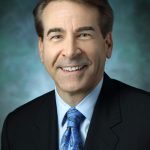Articles Tagged with ''addiction''
Tales from the History of Psychiatry: Opium, an Ancient Psychotropic
Marcia Zuckerman, MD
Director of psychiatric services at Walden Behavioral Care in Waltham, MA
Dr. Zuckerman has disclosed that she has no relevant financial or other interests in any commercial companies pertaining to this educational activity.
Read More
Evaluating and Treating Pain in Psychiatric Patients
 Michael Robert Clark, MD
Associate professor & director of the Chronic Pain Treatment Program at The Johns Hopkins Hospital in Baltimore, MD
Dr. Clark discloses that he has been a paid consultant to Collegium Pharmaceutical Inc. and Depomed, Inc. Dr. Carlat has reviewed this article and has found no evidence of bias in this educational activity.
Michael Robert Clark, MD
Associate professor & director of the Chronic Pain Treatment Program at The Johns Hopkins Hospital in Baltimore, MD
Dr. Clark discloses that he has been a paid consultant to Collegium Pharmaceutical Inc. and Depomed, Inc. Dr. Carlat has reviewed this article and has found no evidence of bias in this educational activity.
Combining Alcohol With Caffeinated Energy Drinks Leads to Increased Alcohol Consumption
Bret A. Moore, PsyD, ABPP
Read More
Dialectical Behavior Therapy for Substance Use Disorders: A Primer
Yevgeny Botanov, PhD
University of Washington Department of Psychology, Seattle, WA
Dr. Botanov has disclosed that he is employed by Behavioral Tech, LLC. Dr. Carlat has reviewed this article and has found no evidence of bias in this educational activity.
Chelsey Wilks, MS
University of Washington Department of Psychology, Seattle, WA
Ms. Wilks has disclosed that she has no relevant financial or other interests in any commercial companies pertaining to this educational activity.
Read More


_-The-Breakthrough-Antipsychotic-That-Could-Change-Everything.jpg?1729528747)



